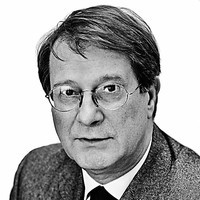Special Evening Talk: Iran After Elections: International Prospects
Discussion topics:
- Three months down the road, what is the impact of the June 14 election for the domestic situation in Iran, as well as on the future direction of Iran’s foreign policy?
- President Rouhani is a man with whom westerners felt they could do business. Jack Straw, UK foreign secretary in 2003 when the region was in turmoil after the US invasion of Iraq, remembers him as “warm and engaging … a strong Iranian patriot [who] was tough but fair to deal with and always on top of his brief”. Could such perceptions positively affect negotiations on nuclear issues, and where does Iran stand on nuclear proliferation?
- Given your UN experience, are international relations today based on reciprocity, particularly when it comes to international law issues, such as security, sea, borders? What is the importance of public policy for Iran’s international relations? Could Iran find common ground with emerging new actors, such as the BRICS countries?
- Iranian diplomats customarily criticise the western media presentation of Iran’s political system. International audiences are often in difficulty to understand Iran’s hybrid system – an Islamic republic based on theocratic authority, yet with a vigorous parliament and regular elections. What is the relationship between the state and religion, and how is the distribution of powers arranged?
- Following the events of the so-called Arab spring, several models of Islam and governance have been discussed internationally, such as Turkey, Iran, Egypt and more. What is your view?
- Recent developments in the region have brought up new variables in Iran-US relations, characterised by animosity following the Islamic revolution. During the last few years it has become apparent that Muslims want no more Western-driven regime change. Several could argue that, if other major planks of Obama’s foreign policy in the region are to survive – to reach out to the broader Muslim world, the Israel-Palestinian peace initiative, the security situation in Iraq, and dealing with the Taliban threat to Afghanistan and Pakistan – it is critical to go gently with Iran. What is your view on the issue of Iran-US relations at present?
- Iranian leaders have often criticised the EU as following the US lead on an anti-Iran policy, particularly regarding sanctions. Yet for some European leaders it remains paramount to retain the ability to negotiate with Iran concerning its quest for nuclear weapons. Iran argues that the EU financial crisis severely impacted on the EU’s ability to exercise hard and soft power. What is your take on the issue?
- The region around Iran is very volatile. The regimes neighboring Iran — Pakistan and Afghanistan to the east, Azerbaijan to the north, Iraq and the Gulf Arabs to the west and south, some being US allies — are potentially fragile, and Iran could further destabilise them in a variety of ways, including economic ones. Furthermore, Iran is a predominantly Shia country and politically influential Shia minorities live in every Muslim state in its wider region, from Lebanon to India. It is alleged that in recent years many of these Shia minorities and their leaders have been funded and mobilised by Iran’s Revolutionary Guards in order to make them a force to counter perceived attempts to undermine Iran. It is argued that many of these Shia minorities would instinctively rally around the leadership in Iran should they perceive of a US threat against Iran. This, in turn, could destabilise regimes in the Middle East and South Asia by causing increased Sunni-Shia sectarianism. What are Iranian intentions on regional security and stability?
- What is the influence of globalization on Iranian youth? How has the use of the internet affected their lives? How have sanctions impacted on their lives?
- Reports indicate that there is significant investment in education in Iran. What is the importance of education, and how is strategic planning on education achieved?
- Reports say that about 70% of students enrolled in Iranian universities are female. What is the position of women in Iran?
- Iran’s interest in the Balkans has been multi-fold since the wars of the 1990s. How would the present regime take matters forward? How possible is a non-aligned movement type of cooperation in our multi-polar world?
Speakers:
Dr. Seyed Vahid Karimi‚ Director of Directorate for European Studies, Institute for Political and International Studies, Iran
Boško Jakšić‚ Foreign Policy Editor-in-Chief, Politika (Moderator)


